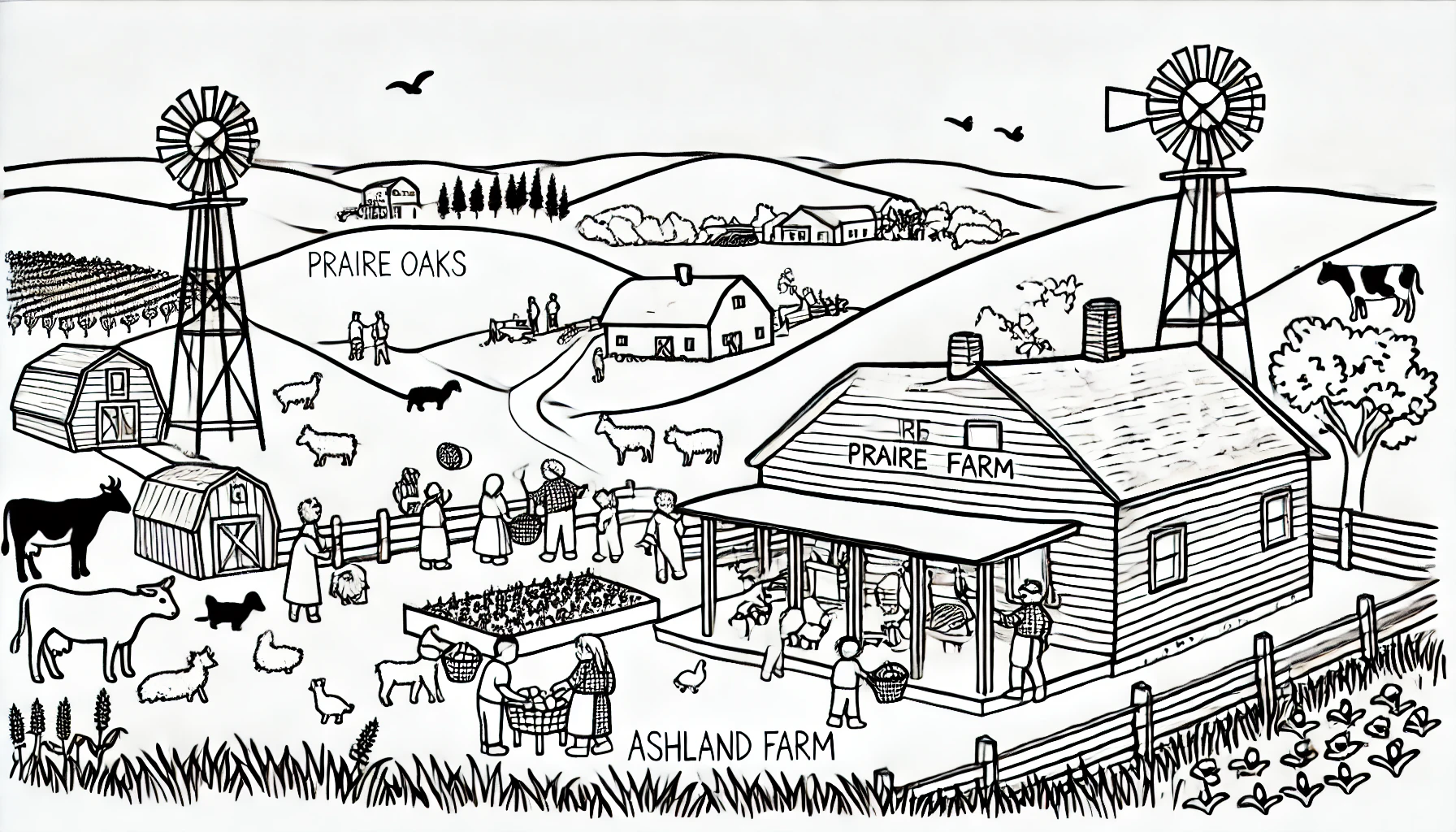Joshua Pilcher: Nebraska's Unsung Explorer

Joshua Pilcher was a prominent figure in the early 19th-century American West, with significant involvement in the region that is now Nebraska. As a fur trader, explorer, and government agent, Pilcher navigated the complexities of the American frontier, forging relationships with Native American tribes and contributing to the development of the region.
Born in 1790 in Culpeper County, Virginia, Pilcher began his career in the fur trade as a clerk for the St. Louis-based firm of Chouteau and Company. In 1813, he joined the Missouri Fur Company, also based in St. Louis, and eventually rose to become one of its principal partners. During his time with the Missouri Fur Company, Pilcher led several expeditions up the Missouri River, establishing relationships with various Native American tribes, including the Omaha and Otoe. He played a significant role in negotiating the 1825 treaty between the Missouri Fur Company and the Omaha Nation, which granted the company permission to establish a trading post near present-day Omaha, Nebraska.
Pilcher's involvement with the Omaha tribe was extensive, and he eventually learned to speak their language fluently. In 1838, he was appointed as a special agent to the Otoe, Omaha, and Missouri tribes by the US government. As agent, Pilcher worked to mediate disputes between the tribes and the government, as well as between the various tribes themselves. His appointment was a testament to his reputation as a skilled diplomat and strategist.
One notable example of Pilcher's diplomatic prowess was his role in resolving a conflict between the Omaha and Otoe tribes in the early 1830s. The conflict centered around the establishment of a new Otoe village near present-day Council Bluffs, Iowa, which the Omaha tribe saw as an encroachment on their territory. Pilcher mediated the dispute, ultimately brokering a peace treaty between the two tribes that allowed the Otoe to remain in the area.
In addition to his diplomatic work, Pilcher was also an accomplished naturalist. During his expeditions up the Missouri River, he collected numerous plant and animal specimens, some of which were later identified as new species. His collection included specimens of the Western meadowlark, which is now recognized as the state bird of Nebraska.
Pilcher's contributions to the early history of Nebraska cannot be overstated. His diplomatic work with Native American tribes helped to lay the groundwork for later settlement and development in the region. His exploration and mapping of the Missouri River also played a significant role in the expansion of American territory in the region.
Despite his numerous accomplishments, Pilcher is often overlooked in accounts of Nebraska's early history. His legacy is a testament to the complexities and nuances of the American frontier, where the boundaries between exploration, trade, and diplomacy were often blurred.
Joshua Pilcher passed away on August 26, 1843, in St. Louis, Missouri. His contributions to the history of Nebraska remain an important chapter in the story of the state's development.
Born in 1790 in Culpeper County, Virginia, Pilcher began his career in the fur trade as a clerk for the St. Louis-based firm of Chouteau and Company. In 1813, he joined the Missouri Fur Company, also based in St. Louis, and eventually rose to become one of its principal partners. During his time with the Missouri Fur Company, Pilcher led several expeditions up the Missouri River, establishing relationships with various Native American tribes, including the Omaha and Otoe. He played a significant role in negotiating the 1825 treaty between the Missouri Fur Company and the Omaha Nation, which granted the company permission to establish a trading post near present-day Omaha, Nebraska.
Pilcher's involvement with the Omaha tribe was extensive, and he eventually learned to speak their language fluently. In 1838, he was appointed as a special agent to the Otoe, Omaha, and Missouri tribes by the US government. As agent, Pilcher worked to mediate disputes between the tribes and the government, as well as between the various tribes themselves. His appointment was a testament to his reputation as a skilled diplomat and strategist.
One notable example of Pilcher's diplomatic prowess was his role in resolving a conflict between the Omaha and Otoe tribes in the early 1830s. The conflict centered around the establishment of a new Otoe village near present-day Council Bluffs, Iowa, which the Omaha tribe saw as an encroachment on their territory. Pilcher mediated the dispute, ultimately brokering a peace treaty between the two tribes that allowed the Otoe to remain in the area.
In addition to his diplomatic work, Pilcher was also an accomplished naturalist. During his expeditions up the Missouri River, he collected numerous plant and animal specimens, some of which were later identified as new species. His collection included specimens of the Western meadowlark, which is now recognized as the state bird of Nebraska.
Pilcher's contributions to the early history of Nebraska cannot be overstated. His diplomatic work with Native American tribes helped to lay the groundwork for later settlement and development in the region. His exploration and mapping of the Missouri River also played a significant role in the expansion of American territory in the region.
Despite his numerous accomplishments, Pilcher is often overlooked in accounts of Nebraska's early history. His legacy is a testament to the complexities and nuances of the American frontier, where the boundaries between exploration, trade, and diplomacy were often blurred.
Joshua Pilcher passed away on August 26, 1843, in St. Louis, Missouri. His contributions to the history of Nebraska remain an important chapter in the story of the state's development.
